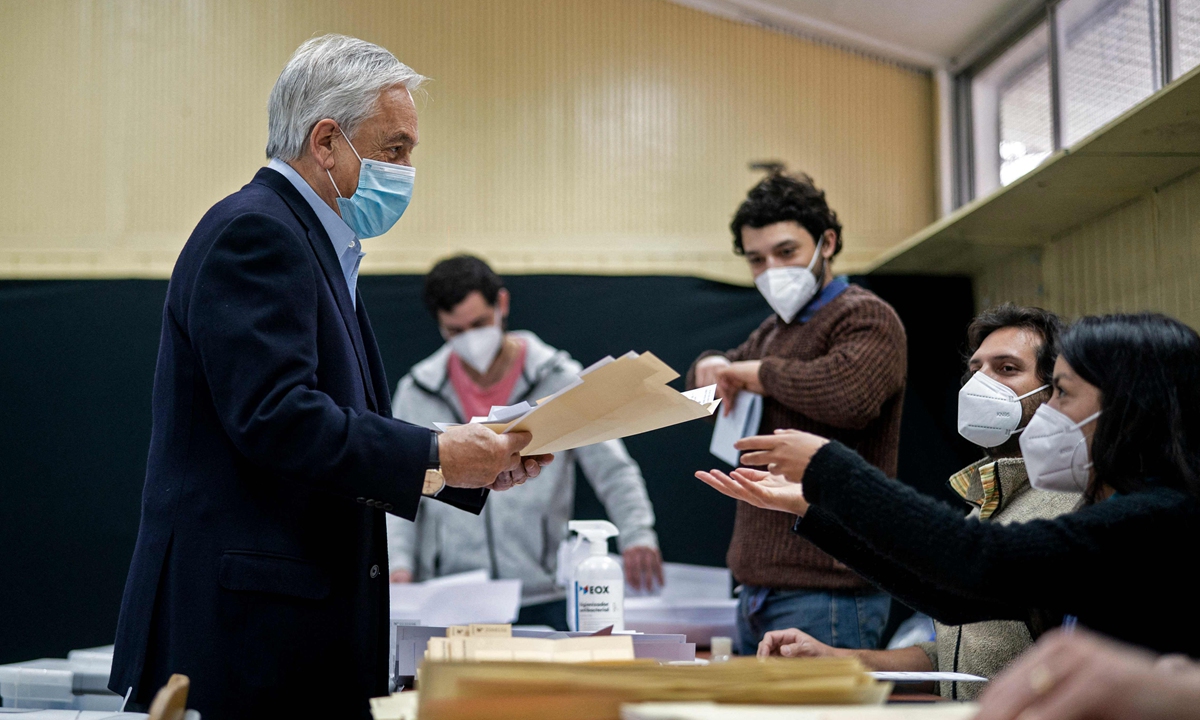
Chilean President Sebastian Pinera visits an election site in Santiago, Chile on Saturday as the country undergoes elections to choose mayors, councilors and a commission to rewrite the constitution. Some 14 million people are eligible to vote in what many consider to be Chile's most important election since its return to democracy 31 years ago. Photo: VCG
A far-right fiscal conservative and a left-wing former student activist will vie to become president of Chile in December, two years after anti-inequality protests that set the country on the path to constitutional change.
Jose Antonio Kast, 55, and Gabriel Boric, 35, took a convincing lead over five rivals in a first voting round Sunday to pass to the runoff on December 19.
Kast of the far-right Republican Party took almost 28 percent of the vote, according to a near-complete count, followed closely by leftist lawmaker Boric of the Approve Dignity alliance with more than 25 percent.
In an address to jubilant supporters, Kast vowed to restore "peace, order, progress and freedom" in response to what he said was a clear call "from a majority of Chileans."
Boric, for his part, vowed to work for "unity," telling supporters: "We did not take to the streets for everything to remain the same."
Sunday's poll came two years after dozens of people died during weeks of demonstrations against low salaries and pensions, poor public health care and education, and in the words of a recent OECD report, "persistently high inequality" between the rich and the poor.
The protesters demanded a new constitution.
The government finally agreed to a referendum, which one year later gave the go-ahead for a new founding law for Chile to be drawn up by an elected body.
Sunday's election continued a recent rout of traditional political parties in charge of decades of neoliberal policy credited with Chile's relative wealth but blamed for its social inequity.
It started with elections for a new constitution-writing body in May that saw voters rejecting established parties and opting in large part for independent, left-leaning, candidates.
Kast and Boric are both from minority parties not in government and not part of the coalitions which have governed Chile since the exit of leader Augusto Pinochet 31 years ago.
With half of the country's 15 million voters said to be undecided ahead of Sunday's ballot, it was seen as the most wide-open presidential contest in decades.
AFP




